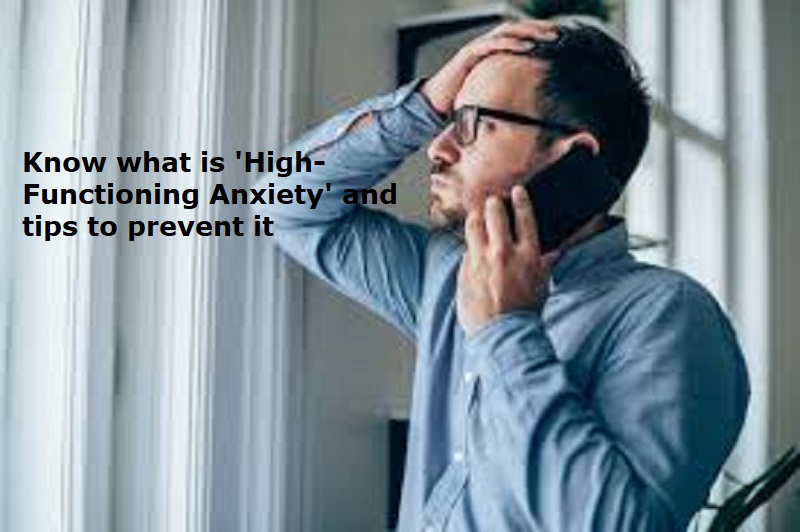
High-functioning anxiety refers to people who live with anxiety but identify as functioning reasonably well. It is not a recognized mental health diagnosis. People with high-functioning anxiety experience the symptoms of anxiety but are able to maintain daily functions.
Signs:
Over thinking and excessive worry about future events or past decisions.
Perfectionism or setting unrealistically high standards for oneself and fear of failure.
Procrastination, overachievement and alternating between delaying tasks due to fear of failure and overworking to compensate.
Restlessness or feeling on edge, difficulty relaxing, or constant mental and physical agitation.
Fatigue and chronic tiredness due to overworking or inability to relax.
Insomnia and difficulty falling asleep or staying asleep due to racing thoughts.
Strong reliance on routines and rituals to maintain a sense of control.
Preferring solitude or smaller groups to avoid social anxiety.
Excessive desire to please others and fear of disapproval or criticism.
Physical symptoms such as Headaches, muscle tension, gastrointestinal issues, or other stress-related physical symptoms.
Causes
Also Read: Eating these foods will make you ‘tired and stressed’
Genetics: Family history of anxiety disorders.
Personality Traits: Traits such as perfectionism, high sensitivity, and conscientiousness.
Environmental Factors: Stressful life events, high-pressure environments, and traumatic experiences.
Chemical Imbalances: Imbalances in neurotransmitters like serotonin and dopamine.
Cognitive Factors: Negative thinking patterns and maladaptive coping strategies.
Prevention tips:
Practice stress-reducing techniques such as deep breathing, meditation, and yoga.
Maintain a balanced diet, regular exercise, and adequate sleep.
Try time management, prioritise tasks, set realistic goals, and avoid overcommitting.
Build a supportive network of friends, family, or support groups.
Incorporate mindfulness practices and relaxation exercises into daily routines.
Seek guidance from mental health professionals when needed.
Treatments
Cognitive Behavioural Therapy (CBT), trying prescribed medications might help manage symptoms. Various other treatments may be suggested by your doctor.
Lifestyle changes
Regular physical activity can reduce anxiety and improve mood.
A balanced diet supports overall mental health.
Establishing a regular sleep routine can improve sleep quality and reduce anxiety.
Partaking in support groups are they provide a sense of community and shared experiences.
Deep breathing exercises, progressive muscle relaxation, and guided imagery reduces physical symptoms of anxiety and promotes relaxation.
Journaling and writing down thoughts and feelings to process and understand anxiety triggers as it helps in identifying patterns and developing coping strategies.
Limit caffeine and alcohol as these substances can exacerbate anxiety symptoms.

Post Your Comments